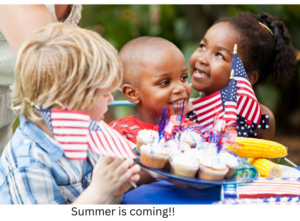Halloween is here! And, with it—the holiday season. While many families look forward to the holidays, families (especially children) of divorce often struggle. Whether celebrating the first season after divorce or the umpteenth, nothing triggers the emotion of divorce quite like the holidays.
Steeped in tradition, connection, and celebration—holidays hold deep meaning. More, they seem to scream, “Family!” So, the challenge of navigating a redefined family comes to the forefront during the holidays.
The good news—holidays can still bring tradition, connection, and celebration. Even from two homes. It starts with defining expectations.
Define expectations for celebrating holidays
Avoiding conflict proves crucial to happy holidays—especially conflict between parents. And nothing creates conflict like unmet expectations.
Yet, most often expectations are unmet because they were either: 1) never expressed, or 2) understood differently. You help ensure a conflict-free holiday when you expressly agree on how to work together during holidays.
Schedule a time to plan holiday events
If you get along with the other parent, schedule a time to grab lunch or a call to plan the holiday season. If you can’t engage productively one-on-one, use your preferred communication method (email, 2houses.com, ourfamilywizard.com, etc.) to share information. However you engage, the goal is to agree how the holidays will unfold.
Many parenting plans outline the basic schedule for holidays but few details. Yet, life happens. The best-laid plans get blown by schools scheduling special events, changes in extended family plans, or work demands. The pre-arranged schedule often doesn’t address any of these.
More, what if one parent wants to take children to a special event which occurs during the other parent’s time? Taking the time to share plans helps parents work together to enjoy the moments most important to each of them.
Finally, some parenting plans provide no schedule or detail at all. Taking the time (especially in the early years) to set expectations lays a foundation for happy holidays for years to come.
Discuss how parents can work together:
- “What will mean the most to the children?” Brainstorm a list of the moments that define the holidays for your children. Moments may be as big as an annual ski trip or as small as watching “The Santa Clause” the Friday after Thanksgiving.
Of these, what can you still do? (Based on finances, timing, and other commitments.) This brings focus for the season. For those you can’t do—what new traditions can you create?
- How does each parent plan to celebrate with the children? Discuss what each of you wants to do with the children.
Of course the private celebrations during each parent’s time can be kept private. But, indicating plans (especially attendance at special events) keeps parents from duplicating or overriding each other. If there are major outings (such as Christmas at the Zoo or visiting Santa Clause at the Children’s Museum), how will you divvy these up? The goal is to detail what you can so that you support each other and the children.
Details include:
- when going (if during the other parent’s time) including days and start to finish times,
- when to tell your children, and
- any special arrangements.
Because the devil is in the details, avoid just agreeing dad will take children to the Children’s Museum program. Instead, offer something like, “I will pick up the girls Tuesday after school, oversee homework, take them to dinner, go through the Children’s Museum program, and have them home by 8:30.”
This detail makes clear that children aren’t coming home on the bus, the other parent doesn’t have to feed them,, what happens with homework, and that children will be home in time to get ready for bed. When both parents understand what will happen, they relax and can better support each other.
- Are there any activities we can still do together? Key for doing activities together is parents’ ability to engage well with each other. When parents can take children Trick or Treating or share a Hanukah meal together, they give children the huge gift of time with both.
However, if parents bicker, compete, or stonewall each other—children cringe. The holidays become events to survive, not celebrate. If considering sharing the time, be honest about whether both parents have healed sufficiently to keep the focus on the event and the children.
If both parents want the same events but are too conflicted to attend together—throw these into a hat and alternate pulling out different events. Each gets their picks for this year. You can trade events for next year.
No matter how you feel about each other, you can preserve the holiday connection and celebration for your children. As you create meaning and fun for them, you preserve the joy of the holidays for all.
If you would like more information on helping children through divorce or any other area of divorce, please email info@ResolutionMediationIN.com or call 317-793-0825. We look forward to serving you.



